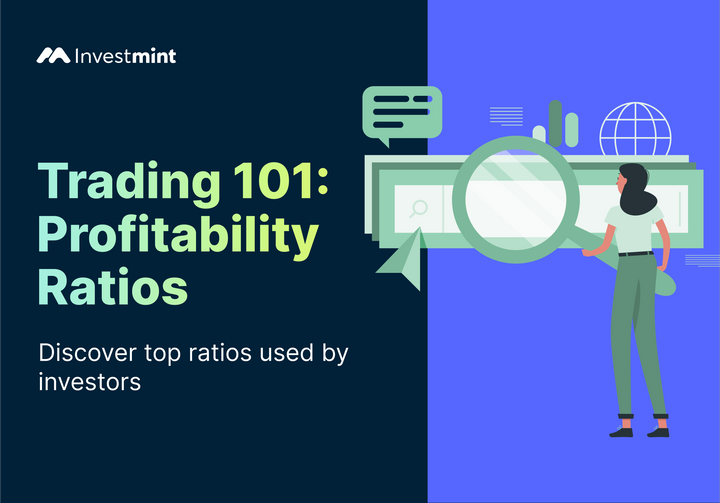What Is SGX Nifty & How Does It Impact The NSE Share Market?
Explore SGX Nifty's impact on Indian stock market. Learn about Gift Nifty's (formerly SGX Nifty) role, advantages, drawbacks & global influence.

In July 2023, one of the most famous indexes in India was renamed. This index had one of the highest numbers of eyeballs after market hours. We are talking about the SGX Nifty, which was recently renamed Gift Nifty (on 3rd July)
The world of finance is deeply intertwined. What happens in one part of the world can impact markets in another. More importantly, with access to the Internet and global markets, people want to invest in international companies. For instance, you can be in India and invest in Apple, Microsoft, or Tesla listed in the U.S.
Similarly, people living in Singapore may want to invest in the Indian Nifty. They can do so with the SGX Nifty! In this article, we will explore what the SGX Nifty is and the kind of impact it can have on the Indian stock exchanges.
What Is Nifty?
Before getting to SGX Nifty, let’s understand what Nifty is– In simple words, Nifty is the benchmark index for India’s National Stock Exchange (NSE). It represents 50 companies, some of India’s largest companies in market cap. It is one of India's two main benchmark equity indices, the other being the BSE Sensex.
What Is SGX Nifty?
Coming to SGX Nifty, the SGX stands for the Singapore Stock Exchange. The two components summed up together make up the SGX Nifty, which is a platform to trade the Indian Nifty on the Singapore Stock Exchange.
Anyone who wants to trade the top 50 companies listed on the Nifty from Singapore can do so via the SGX Nifty. Together, the Singapore stock exchange and Nifty 50 comprise the SGX Nifty. The buyer and seller commit to the predetermined share price and have to stick to the price irrespective of any changes in future market trends.
SGX Nifty trade timing is from 6 AM to 11:30 PM on regular working days. This interval contrasts the Indian stock markets, which operate from 9:15 am to 3:30 pm on regular working days. Hence, the trades and market trends on the SGX Nifty impact the Indian counterparts.
Who Can Trade SGX Nifty?
Investors who cannot access the Indian stock market and want exposure to the Indian Nifty can trade on SGX Nifty. However, this platform is not available to Indian investors because of the restriction on Indians from trading in derivatives listed on foreign exchanges.
The Difference Between SGX Nifty And Nifty
Here are a few points of difference between SGX Nifty and Nifty:
Does The SGX Nifty Impact The Indian Stock Market?
The SGX Nifty opens earlier when compared with the Indian Nifty. The pre-opening session for the Indian stock market begins at 9 am, and regular trading hours start at 9:15 am. Whereas the SGX Nifty opens at 6:30 am IST, which gives investors and traders an overall idea of the existing market trends and any factors that influence the price trends of individual stocks.
The Nifty may or may not necessarily follow the price or market trends of the SGX Nifty. Still, it gives an overall sense of the direction of the Nifty50 in the early hours.
An interesting thing to note here is that because of the timings, a lot of Indian, as well as foreign trade, goes into foreign markets, and some on the SGX Nifty. In an attempt to bring back some of that business to India, the National Stock Exchange is considering extending its closing time from the current 3.30 pm IST to 5 pm IST. Extending market hours could not only increase domestic transaction volume but could also have other benefits, such as reducing overnight market risk.
The SGX Nifty is more volatile than the Indian Nifty. The factors affecting SGX Nifty’s volatility have very little to do with those concerning the NSE Nifty. SGX Nifty opens before the NSE Nifty, but most traders wait for trading to begin on the NSE before they trade on the SGX Nifty. Hence, there is minimal impact that SGX Nifty has on the NSE.
Impact Of Global Markets On NSE
The Indian stock market is affected by developments in global markets. Cues from Asian, European and American markets affect the Indian stock market. Traders look for the performance of international markets to place their bids on any given day. If the international stock exchanges are not doing well, traders avoid placing large bets in the local stock exchanges. The National Stock Exchange is, thus, slightly dependent on the international stock exchanges, particularly the New York Stock Exchange (NYSE) and its performance.
Advantages Of SGX Nifty
The SGX Nifty does provide some added advantages to traders. Some of them are:
- Extended Trading Hours
SGX Nifty allows traders to trade beyond the Indian stock market hours. It starts trading at 6:30 AM Indian time, almost 2.5 hours before the Indian stock market opens, and continues to trade until 11:30 pm Indian time, which is 8 hours after the Indian stock market closes.
- Hedging:
SGX Nifty allows investors (foreign) to hedge their positions in the Indian market. For instance, if an investor has a long position in the Indian stock market, they can use SGX Nifty to take a short position, which can offset the losses in case of a downturn in the Indian market.
- Price Discovery
SGX Nifty trades 16 hours a day, which helps in price discovery. Implying that the prices have factored in most of the global factors, and not just local events, making them more efficient.
- Access to Foreign Investors
SGX Nifty provides access to foreign investors interested in investing in the Indian market but may face regulatory restrictions or operational hurdles because of the time difference. SGX Nifty allows them to invest in the Indian market indirectly without having to deal with these issues.
However, as we discussed earlier, if the trading hours on the NSE increase, some of the challenges faced by foreign investors at present will be reduced. Also, the inauguration of the GIFT Nifty could solve some of these problems.
Disadvantages Of SGX Nifty
- Limited Availability of Products
The products available on SGX Nifty are limited compared to the Indian stock market. This implies that investors may not invest in all the sectors and stocks available on the Indian stock exchange.
- Regulatory Issues
There have been regulatory issues between the Indian and Singaporean authorities regarding the trading of SGX Nifty. In 2018, the Indian government imposed restrictions on the trading of SGX Nifty, which caused a decline in trading volumes. Also, Indians are not allowed to trade in derivatives of other countries, which restricts Indian citizens from taking any positions on the SGX Nifty.
- Currency Risk
SGX Nifty is traded in Singaporean dollars, which means you may be exposed to currency risk if you invest in the SGX Nifty. The exchange rate between the Indian rupee and the Singapore dollar can be volatile, affecting the returns on your investments.
Conclusion
Investors can have a general view of the Indian markets by following the SGX Nifty. The 16-hour trading window of the index allows it to absorb all market fluctuations and presents a better scope of understanding the market trends in India. However, if India extends its market timings, other indices, such as the GIFT Nifty, could lose some followers over time.
Summary
- SGX Nifty trades on the Singapore Stock Exchange as a derivative of the Nifty index.
- SGX Nifty helps traders predict the direction of the Nifty as the Singapore stock market timings are ahead of the Indian stock market.
- SGX Nifty serves as an alternative to investors who do not have access to Indian markets. The extended trading hours of the index provide leverage in transactions, primarily to hedge funds and enhance traders’ decision-making capacity.
- However, SGX Nifty is more volatile than NSE Nifty and is affected by world economic cycles and political developments.



